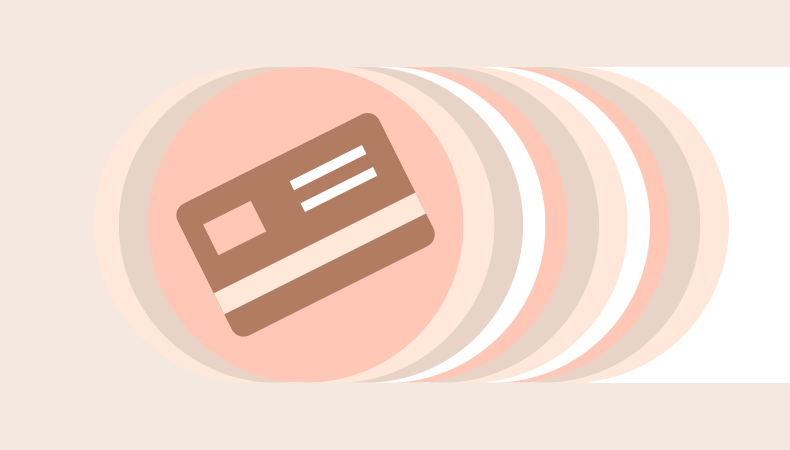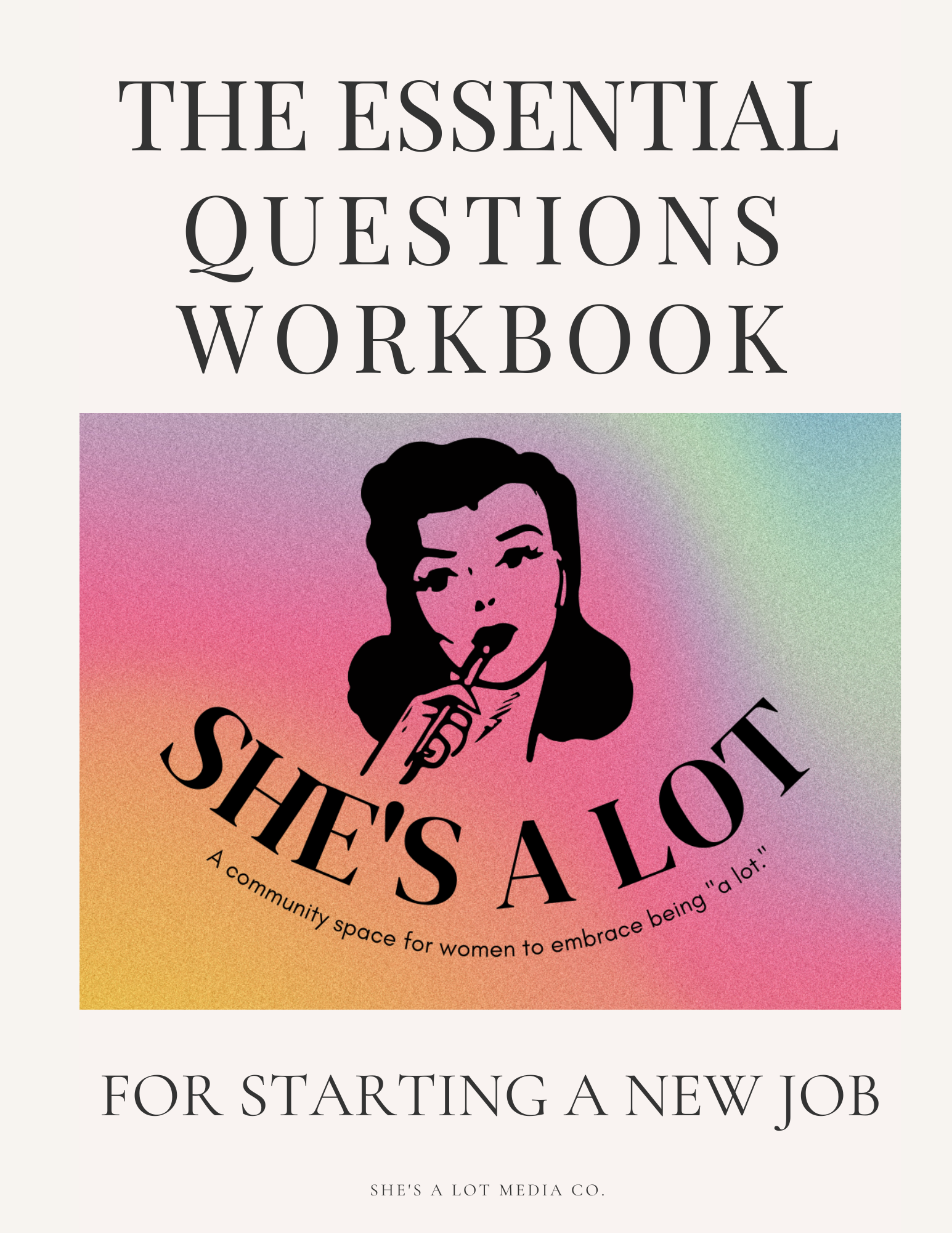
Getting your first credit card can be a confusing and overwhelming process. But it’s an important one, considering the fact that we live in a society where credit is essential. Without credit, you can’t do things like buy a house, and ironically, you won’t qualify for some credit cards! So how do you actually get a credit card, especially if you have no credit? This guide will answer all of those questions for you:
If you’re in your 20s and feel like you need to start being financially responsible, getting your own credit card is a great first step. But there’s no need to let this decision stress you out. Once you know what to look for in a card, the process will be much easier. With this guide, you’ll be ready to apply for your first credit card in no time.
Your First Credit Card: FAQ
How do I establish credit?
The unfortunate reality is that you often need credit to get a card, loan, etc. So how do you get credit without having credit? You can apply for a credit card that doesn’t require credit!
This will help you start building credit, but it will not give you good credit. To get good credit, make sure to pay all your credit card statements on time, as well as your bills and any loan payments you may have, like student loans.
We recommend a card that’s great for people with no credit below.
What does “APR” mean?
This is a term you’ll see everywhere as you begin your credit card research. It stands for Annual Percentage Rate but is really an interest rate. Note that APR takes on a slightly different meaning than interest rate when it comes to other things, like loans and mortgages. But, in this case, you should think of APR as the interest you’ll pay if you’re late paying off a credit statement.
How can I check my credit score for free?
If you ever had a joint credit card with a parent, you definitely have a credit score and you should know what it is! Even if you’ve never had your name on any cards, you could still have a credit score if you’ve taken out a student loan or even used store credit for purchases.
It’s essential to know your credit score so that you apply for credit cards that you have a reasonable chance of getting. Every time you get rejected from a card, your credit score takes a hit. So, if your credit score is only 630, you should know so that you can begin building it up and only apply for cards that will accept your credit score.
You can check your score for free at any time using Credit Karma. This is free and available at any time. However, Credit Karma is not a credit bureau, so it may not be as reliable as using an actual credit bureau. Some credit bureaus include:
- Experian
- TransUnion
- Equifax
What’s important to know when using a credit bureau is that you can only get one free report every 12 months. This is why Credit Karma is great for a quick check and these credit bureaus are great for when you might be using your credit score for a larger purchase.
What should I look for in a credit card?
The answer to this question greatly depends on your own personal preferences. Some things to consider include:
- The requirements to get approved (a credit score above 700, for example)
- The APR, or interest rate
- The annual fee
- Cashback
- Credit limit
- Travel perks
- Other perks/rewards
Of course, finding a card you can get approved for with the lowest APR and annual fee and the most cash back and other perks/rewards possible is ideal. However, you’ll have to find a happy balance of these to pick the right card for you. We’ll break down some good options and what they offer below to help you out.
How do I apply for a credit card for the first time?
Once you’ve selected a card to apply for, actually applying is the easy part. You’ll need to make sure you have your social security number, your annual income, and your monthly rent/mortgage payment readily available when you fill out your application.
To get started, visit the website of the card you’ve selected and apply!
How to Choose a Credit Card for the First Time
1. Determine your financial standing
Are you a student? Do you have no credit or a low credit score? Your answers to these questions may automatically rule out certain cards. Certain cards are specifically made for students and are a great option since they usually offer better interest rates than a traditional credit card. On the other hand, if you have no credit or low credit, there will be certain cards you can’t currently get approved for. You want to avoid applying for credit cards that you have a very low chance of getting approved for because a rejected application actually hurts your credit score even more.
Your income also plays a role in what credit card you choose. For most credit cards, unless you have a very low income, this may not keep you from getting approved, but there are certain cards that are better suited for people with higher incomes. For example, cards with high annual fees are best for people with higher incomes. There is no “cut-off” income, but it’s essential that your card matches your lifestyle and that the perks make the annual fee worth it. If you’re not flush with cash or are simply more conservative with money in your daily lifestyle, consider a card with a lower annual fee.
2. Decide what perks are important to you
Now that you’ve decided which cards are not right for you because you might not get approved or the annual fee is too high, it’s time to narrow down the possibilities you have left. Because different cards offer different perks, you’ll want to decide which of the following are most important to you:
- Cashback. Some cards offer cash back on every purchase, others only offer cash back on certain types of purchases and all offer different amounts of cash back.
- Low interest rate. If you anticipate being late on payments (or you’re forgetful), a card with a lower APR may be a good idea. However, we strongly recommend not spending more than you can actually afford and always making your payments on time.
- Travel perks. If you love to travel, getting a card that offers more cash back on travel purchases or special deals may be a great idea.
- Luxury perks. Some cards offer extra perks like access to travel lounges, premium memberships to various services and hotel chains, and more. These perks are not necessary for the average person but can be nice to have if this is important to you. You might focus on these perks more for future cards but not for your first credit card.
3. Compare cards
Once you have a preliminary list of anywhere from 3-7 cards, take the time to compare them in detail and weigh the pros and cons of each. I spent a lot of time going back and forth between the Chase Sapphire Preferred Card and the Amex Platinum card because they are very similar, but the Amex has more perks at a higher annual fee. It took me a while to make the decision of whether or not the higher annual fee was really worth the perks I would be getting.
Finances are always an incredibly personal choice. Ultimately, you know your spending, your income, and your level of responsibility. Pick a card with the benefits you want and will not push your wallet to its limits.
Top 5 First Credit Card Options
Discover It Secured Credit Card
Great if you have no credit
If you have no credit and want to get started, this is the perfect card. It has a reasonably average interest rate and also offers cash back. Choose this card if you are looking for a no-fee card to help you build credit.
Cheat Sheet:
- You don’t need to have any credit to apply
- There is no annual fee
- Earn 2% cash back at Gas Stations and Restaurants on up to $1,000 in combined purchases each quarter
- 10.99% intro APR on balance transfers for 6 months
- 22.99% Variable APR after that
Capital One Platinum Credit Card
Another fee-free credit car option
If you do have credit, but your credit score is on the lower side, consider the Capital One Platinum card. This is a safe bet to get approved for a card that can help you improve your credit without having to pay an annual fee.
Cheat Sheet:
- No annual fee
- 26.99% variable APR
American Express Blue Cash Everyday® Card
No fee, cashback, low interest rate
If you have a credit score of at least 670 and want a card with no annual fee and cash back, try this Amex Blue Cash card. While you do get cashback with this card, you’re limited in what purchases qualify for cashback. However, if you’re still working on building your credit, this can be a good card for you.
Cheat Sheet:
- No annual fee
- 0% intro APR on Purchases for 15 months
- 13.99%-23.99% Variable APR
- 3% cashback on groceries
- 2% cashback on gas
Capital One QuicksilverOne Cash Rewards Credit Card
Great for cash rewards, has annual fee
If you’re okay with a small annual fee and want to keep it simple, the Capital One Quicksilver card is a great choice. With 1.5% cash back on every purchase (no limits or restrictions), you can put your daily spending on here without worrying about complicated point systems or making use of other perks to earn back your high annual fee.
Cheat Sheet:
- 26.99% variable APR
- $39 annual fee
- 1.5% cash back on every purchase
Chase Sapphire Preferred Credit Card
Good for travel perks with lower annual fee
For the travel lover who still wants to keep their annual fee low, the Chase Sapphire Preferred card will offer a lot of perks you’ll love. On top of the perks it offers, there is also a 60,000 point bonus after you spend $4,000 in your first 3 months. If this doesn’t seem like a feasible spending amount to you, then you’re probably better off with one of the previous cards mentioned. However, if you’re looking for travel perks, the points you earn with this card are great for a young traveler.
The only downside to cards that use points versus simple cashback is that you have to be careful about how you redeem the points in order to get the maximum value possible.
Cheat Sheet:
- $95 annual fee
- 15.99% – 22.99% APR
- 60,000 bonus points after you spend $4,000 on purchases in the first 3 months
- $50 Annual Ultimate Rewards Hotel Credit
- 5x points on travel purchased through Chase and on on Lyft rides
- 2x points on all other travel purchases
- 3x points on online grocery purchases and dining
- Points are worth 25% more when you redeem them for travel
- Complimentary DoorDash subscription
American Express Platinum Card
Great travel (and other) perks, higher annual fee
This is not your typical starter credit card. To really get your money’s worth, you need to max out the perks as much as possible. However, if your income and spending habits align with this card, the rewards can be amazing. If you use the Uber cash, the hotel credit, and the digital entertainment credit alone, you’ve already almost earned back the annual fee. There are even more benefits not listed here that put you far above the annual fee.
You might think, “Well, I could just pay for these things myself instead of paying an annual fee.” That’s true. However, you’d be missing on other perks that come with an Amex Platinum card, like access to airport lounges, complimentary Hilton Honors and Marriot Bonvoy status, and access to the Hotel Collection, which guarantees upgrades and gets you a $100 credit during your stay. If you love to travel and want (and can afford) some luxury, this card is the best choice.
Cheat Sheet:
- $695 annual fee
- 15.99% to 22.99% variable APR
- 100,000 Membership Rewards points after you spend $6,000 on purchases on your new Card in your first 6 months
- 5X Points on Flights & Prepaid Hotels
- $200 Annual Hotel Credit
- $200 Annual Airline Fee Credit
- $240 Annual Digital Entertainment Credit (Audible, NYT, etc)
- $200 Uber Cash annually
Final Thoughts
Making a financial decision, like picking your first credit card, is a very personal decision and shouldn’t be taken lightly. Do your research and make sure you’re honest with yourself when picking the card that will work best for you. And no matter what card you get – always pay it off in time!





